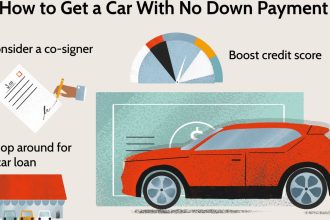Flexible and Custom Insurance Options
Not all drivers fit into the standard one-size-fits-all insurance policy. Whether you own a heavily modified vehicle, drive a luxury classic, or need only temporary coverage, traditional insurance plans may leave you either underinsured—or overpaying.
In 2025, insurance companies have recognized the need for flexibility. New options like new car replacement insurance, agreed value car insurance, modified car insurance, and pay-by-day or month-to-month insurance plans give drivers more control over cost and coverage.
This guide explains when each specialty coverage makes sense and how to choose the right one for your situation.
Short-Term and Monthly Insurance Plans
For drivers who don’t use their car frequently or don’t want long-term contracts, short-term and month-to-month insurance plans are becoming a popular solution.
What Is Pay-by-Day or Month-to-Month Car Insurance?
Unlike standard six- or twelve-month policies, pay-by-day or monthly coverage allows flexibility without commitment. You can activate or cancel coverage anytime, making it ideal for:
- Seasonal drivers
- College students home on breaks
- People waiting to switch vehicles
- Gig or delivery drivers who only need part-time insurance
Some insurers offer usage-based policies—you pay for the miles you drive rather than a fixed rate. Apps like Metromile, Hugo, and Nationwide SmartMiles track your mileage and charge accordingly.
If you drive under 6,000 miles per year, a pay-per-mile plan can cut insurance costs by 30–50%.
Pros and Cons of Short-Term Insurance
| Pros | Cons |
| Flexible and cancel anytime | Not available in every state |
| Affordable for low-mileage drivers | May lack full coverage options |
| Great for temporary vehicles | Can cost more if driving daily |
Specialty Coverage for Modified Cars and Classics
If you’ve invested in aftermarket upgrades or restored a vintage vehicle, standard insurance won’t cover the true value of your car. That’s where modified car insurance and classic car insurance come in.
What Is Modified Car Insurance?
Modified car insurance covers vehicles with performance or visual modifications, such as:
- Engine upgrades or turbo kits
- Custom paint or wraps
- Lifted suspensions
- Sound systems or digital dashboards
Traditional insurers often deny claims or refuse coverage if modifications weren’t declared. Specialized insurers like Hagerty, Grundy, and Adrian Flux offer protection for every installed upgrade.
Important: Always list your mods upfront. Failure to disclose them can result in claim denial.
Classic and Collector Car Coverage
Cars that are over 20–25 years old, restored, or stored seasonally qualify for classic car insurance, which is typically cheaper than standard policies—as long as you don’t drive them daily.
These policies often come with:
- Agreed Value payouts (more on that below)
- Limited mileage plans for lower rates
- Spare parts coverage for restorations
When Agreed Value Insurance Makes Sense
Most standard policies use Actual Cash Value (ACV) when determining payouts. That means if your car is totaled, you only receive its depreciated market value—which is often far less than what you invested.
What Is Agreed Value Car Insurance?
With agreed value coverage, you and your insurer agree in advance on the car’s payout amount. If the car is stolen or totaled, you receive that full agreed value—no depreciation applied.
Best suited for:
✔ Classic cars
✔ Luxury or exotic vehicles
✔ Heavily modified cars
✔ New cars losing value fast
Agreed Value vs. Stated Value – What’s the Difference?
| Type | Payout Basis | Best For |
| Agreed Value | Full pre-set payout | Show cars, classics, high-value vehicles |
| Stated Value | Up to stated max—insurer may pay less | Moderate custom cars or unique builds |
If you’ve put more money into your car than its market value reflects, agreed value insurance is the safest option.
What Is New Car Replacement Insurance?
Even a brand-new car depreciates by 10–20% the moment it’s driven off the lot. If it gets totaled in the first year, a standard policy may reimburse you less than what you still owe on your loan.
New car replacement insurance solves this problem by covering the cost of a brand-new replacement vehicle—not just its depreciated value.
Who Should Get It?
Drivers with vehicles under two years old
Anyone financing or leasing a car
Owners of EVs or high-depreciation models
Some insurers even offer Better Car Replacement policies, where they cover a newer model year or upgraded trim in the event of a total loss.
Which Custom Coverage Should You Choose?
| Situation | Best Coverage Option |
| New car under 2 years old | New Car Replacement Insurance |
| Custom performance mods or visual upgrades | Modified Car Insurance + Agreed Value |
| Classic or collectible show car | Classic Car Insurance with Agreed Value |
| Part-time or seasonal driver | Pay-by-Day or Month-to-Month Insurance |
| Low mileage under 500 miles/month | Pay-Per-Mile Insurance |
Conclusion
If you drive a unique vehicle—or don’t drive daily—you shouldn’t settle for a generic policy. Specialty coverage options like new car replacement insurance, modified car insurance, agreed value policies, and month-to-month plans offer protection that fits your lifestyle.
Before choosing, always:
✔ Get multiple quotes from specialty insurers
✔ Read coverage limits and exclusions carefully
✔ Declare all upgrades and usage habits honestly
FAQs – Special Coverage Types
1. What is agreed value car insurance?
Agreed value insurance guarantees a pre-set payout if your car is totaled—without depreciation.
2. Does standard insurance cover vehicle modifications?
Not usually. You’ll need modified car insurance for performance or cosmetic upgrades.
3. Is month-to-month car insurance legit?
Yes — providers like Hugo and Allstate offer contract-free insurance you can pause or cancel anytime.
4. Do I need new car replacement insurance if I already have GAP coverage?
GAP covers loan balance, while new car replacement covers full value of a brand-new replacement vehicle. Many drivers carry both.
5. Can I switch from full coverage to pay-per-mile insurance?
Yes — as long as your insurer offers telematics-based policies. You’ll typically install a plug-in or app to track mileage.








